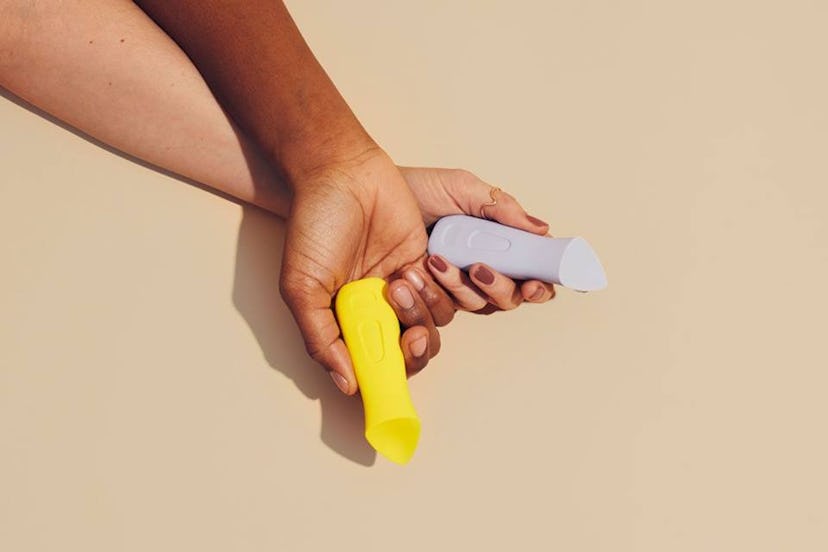Why Dame Products Is Suing NYC’s MTA Over a Vibrator Campaign

Any trip on the New York City subway is often full of things you don’t want to see. But the MTA is apparently drawing a line at one: ads for Dame Products, the trendy vibrator company. The company is now using their social media presence to point this out, as its founders Alex Fine and Janet Lieberman believe that sexism is the reason why their ads were rejected by the MTA.
Even though erectile dysfunction, birth control and breast augmentation ads are rampant on the subway, Dame Products’ ads were rejected by the MTA after the city’s transit organization allegedly courted them into advertising on the subway. Now, there is a lawsuit pending from Dame Products against the MTA. In the lawsuit, the company alleges that “the MTA has approved numerous advertisements for hims, a company that sells medication to treat erectile dysfunction… The MTA did so despite the fact that hims’ phallic imagery is far more overt and explicit.” But the company’s ads, which depicted their rather innocuous-looking devices with captions like “You come first” and “toys, for sex” were rejected.
“The MTA’s decision to reject Dame’s advertisements reflects no legitimate principle of law,” the lawsuit states. “Instead, it reveals the MTA’s sexism, its decision to privilege male interests in its advertising choices.” The lawsuit lays out how the MTA rejected Dame Products after the brand spent “$150,000” of its “scant resources to incorporate the MTA’s feedback, submit revised advertisements, and order additional inventory, all in reliance on the MTA’s representation that it would accept Dame’s materials.” “Although the MTA has previously welcomed advertisements that celebrate human sexuality and openly discuss sexual health and function—not to mention advertisements that use sexual imagery or explicit text to sell consumer goods—the MTA excluded Dame from this vibrant public discourse and denied Dame coveted advertising space,” the lawsuit argues.
In a statement to W Magazine, Fine explained how the lawsuit is larger than just Dame Products’ clashing with the MTA; it’s about “the pleasure gap.” “When I started Dame Products, I could never have imagined that it would have led me to file a lawsuit,” Fine wrote via email. “But at this stage, this is the most effective way for us to continue to carry out Dame’s mission: to close the pleasure gap. The fact that companies advertising erectile dysfunction medications can advertise and yet we’ve been deemed too sexual points to a clear gender bias and censorship from the MTA, which we believe is part of a larger cultural inability to openly and safely discuss women’s sexuality. While we tried to work together with the MTA to make a change, our efforts ultimately proved futile. We’re doing this to take a stand not only for Dame Products, but for all other businesses aiming to reach vulva-owners that have been muted.”
In the company’s lawsuit, Dame Products is seeking more transparency around the MTA’s advertising policies surrounding “sexually oriented business,” attorney fees, and compensatory damages.